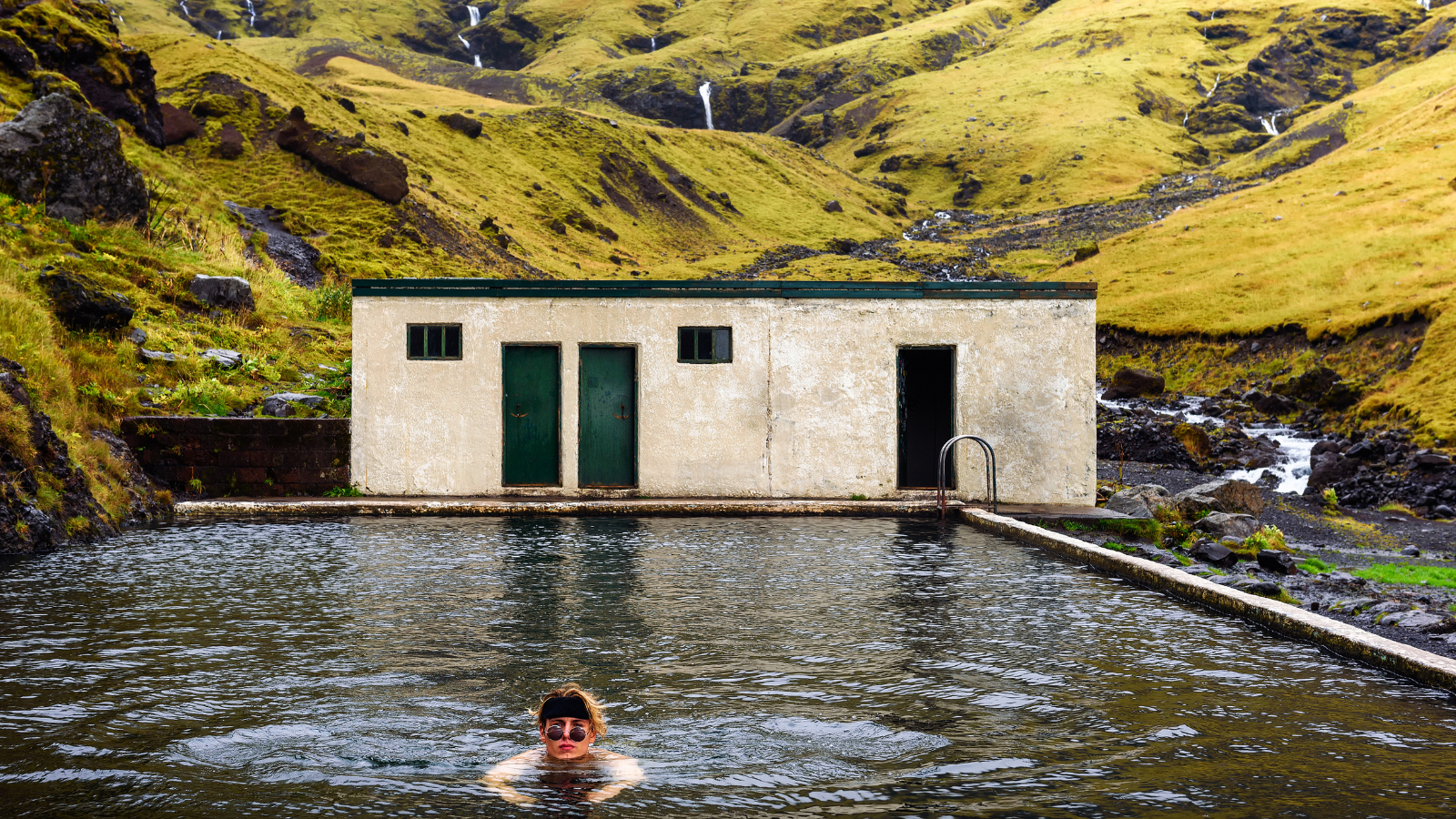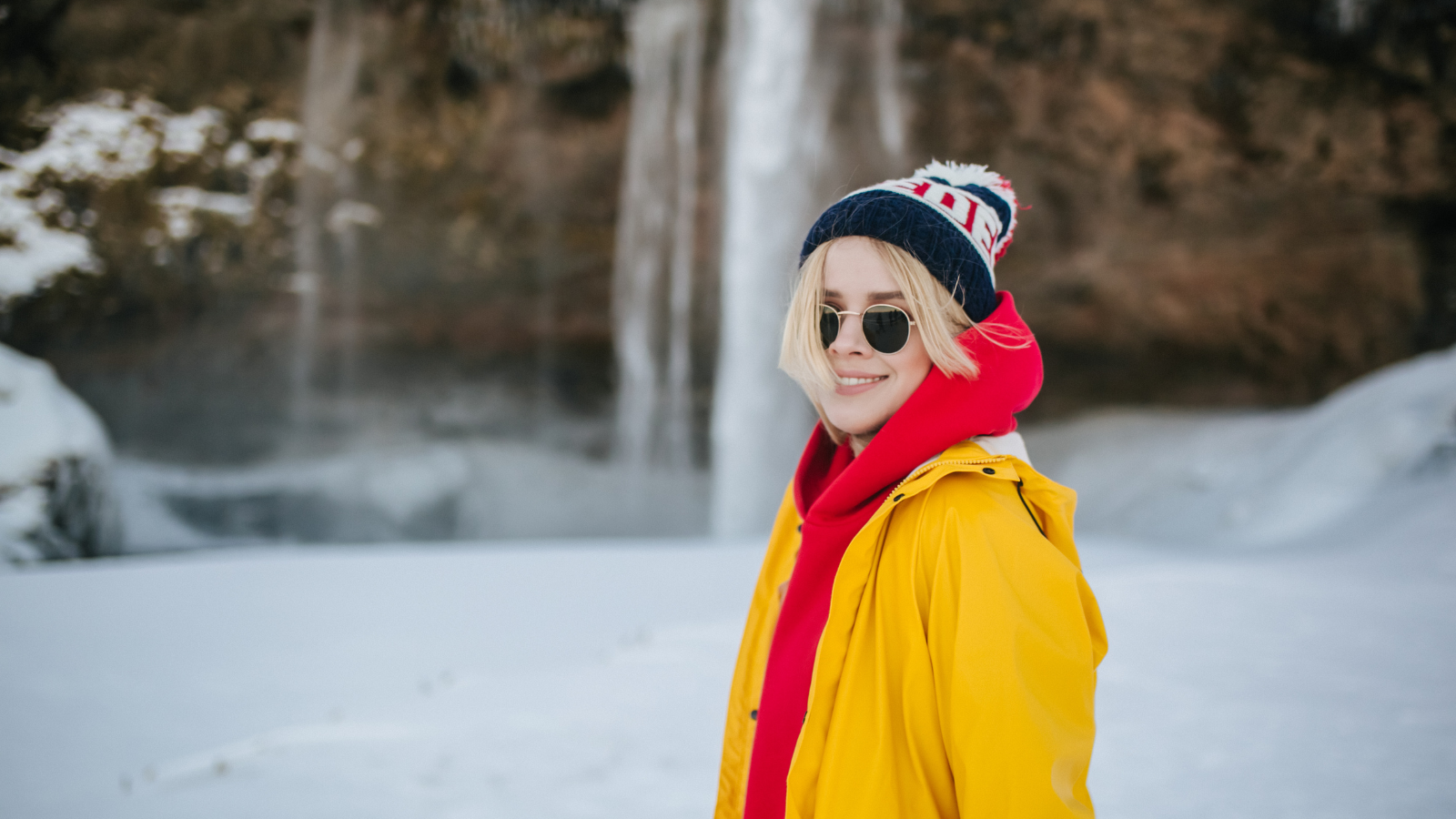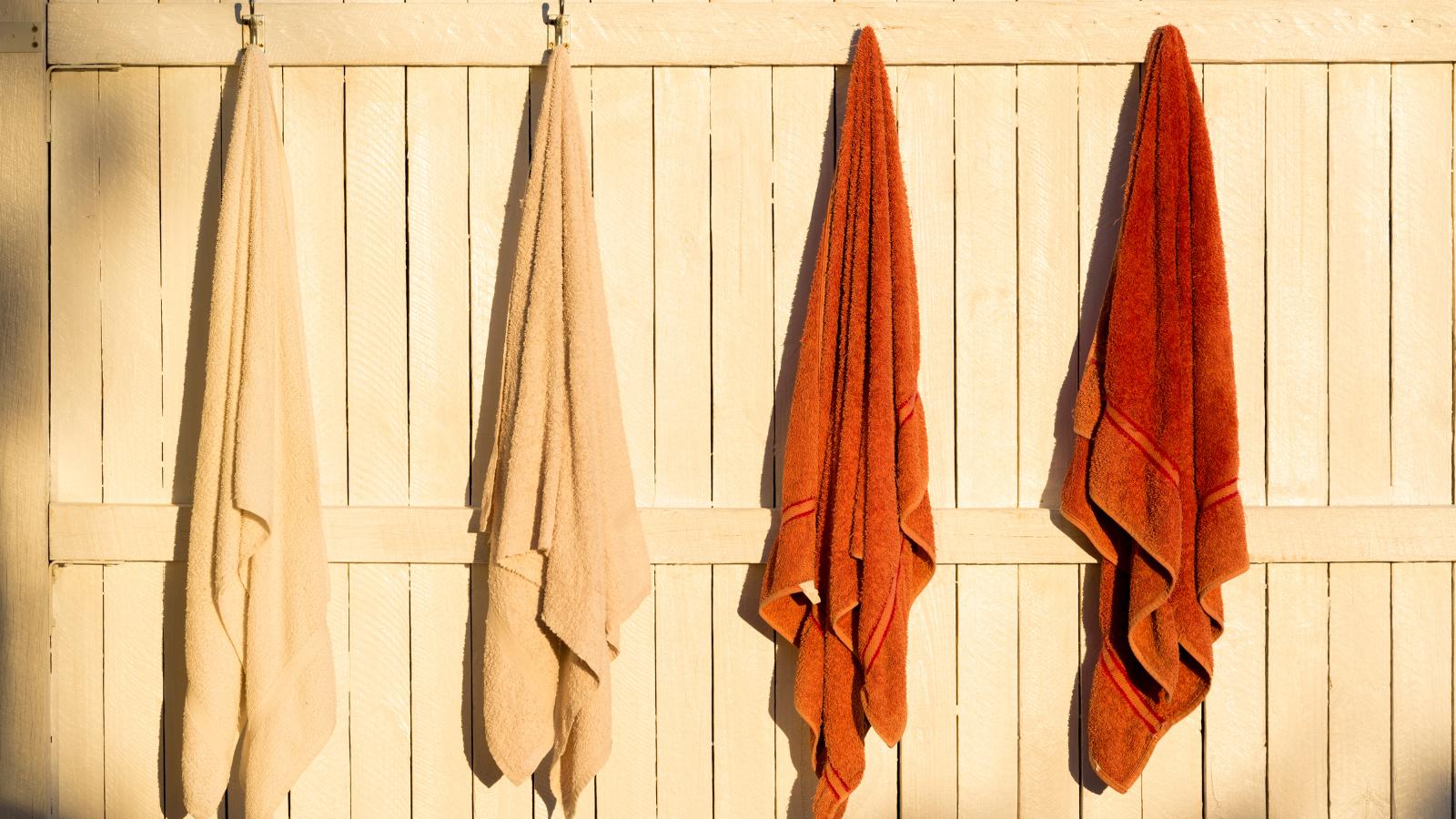Planning a trip to Iceland in the winter? It can be difficult to know what you need to pack when it comes to a winter holiday, especially if you haven’t been to Iceland before. Of course, you’ll need to think about warm clothing, but depending on where you go, it might not be as cold as you think. The south of the island is somewhat warmer than the north and average temperatures don’t usually reach below -5°C. Having said that, it is always recommended to pack thermals and layers to keep warm. Iceland’s winds are infamous, after all!
It is also important to think about whether you plan on doing any specialist activities that may require additional items, such as tents and camping equipment, although most of these things can be hired upon arrival.
Wam clothing aside, here are some essentials for Iceland in winter that you’ll want to think about when preparing your packing list.
1. Windproof Accessories
An essential for visiting Iceland is to make sure that you buy windproof gloves, hats, and even jackets where possible. This is because even when the temperature isn’t that cold in Iceland, the windchill can cut right through you. Having windproof clothing can make all of the difference and keep you from feeling the cold as much. You should also consider whether you plan on doing any activities as you might then need waterproof accessories too.
2. Walking or Hiking Boots
You must have a good pair of hiking or walking boots when you head to Iceland, even if you don’t plan on doing a lot of hiking. It is also important that your boots are waterproof so that you can make sure your feet stay dry. If you are heading to Iceland in the winter, then you are more than likely going to encounter some snow and wet conditions. Some of the best sights in Iceland are quite difficult to reach, and parking is often a fair walk away from the attraction. If you are planning on making the most of the remote natural landscape then make sure you think about investing in a good pair of hiking boots.

3. Swimwear
Although it might not seem like the thing you’d usually do in the winter, you should make sure that you pack some swimwear, particularly if you are keen to visit the Blue Lagoon or the Sky Lagoon. Although outdoor pools and spas would usually be closed in the winter, these geothermal pools are naturally heated so they stay warm all year round. This is a massive part of the culture in Iceland and there are a number of other natural geothermal pools in the country. For many of these pools you have to pay for entry but there are also some natural pools that are completely free.
4. Thermos Flask
A great way to keep warm in the winter is to make sure you bring a thermos flask with you. Fill this up with coffee or a warm drink before heading out for the day and it can keep you warm when you’re out exploring. Iceland has a lot of wide open spaces that can be very remote, so you are unlikely to run into many cafes or shops outside of towns and cities. A hot drink can really warm you up from the inside and help you fight the cold winds you can often experience in Iceland. You can also get an energy boost from the caffeine to help you on long walks.

5. Sunglasses
While the days may be shorter during an Icelandic winter, the sunlight can still be intense, especially when it reflects off the snow-covered landscapes. Don't let the cold weather fool you; the winter sun in Iceland can be surprisingly bright and low on the horizon, creating glare that can strain your eyes.
Pack a reliable pair of sunglasses to protect your eyes from the harsh winter sunlight and reflections off of the snow. Opt for sunglasses with UV protection to safeguard your eyes from harmful rays. You can always double up the protection and choose a pair that provides coverage to shield your eyes from the biting wind, which is a common feature of Icelandic winters.
6. Moisturiser
Iceland's winter can be notoriously cold and dry, and the combination of chilly temperatures and brisk winds can take a toll on your skin. To combat the harsh winter conditions, it's essential to include a high-quality moisturiser on your packing list. Applying moisturiser and lip balm before heading outdoors can help soothe and nourish your skin.
7. Medication
The remote landscapes and limited access to shops make it crucial to be self-sufficient. That's why we advise including prescription medications, over-the-counter remedies for common ailments, and a compact first aid kit in your travel essentials. Be prepared to address any unexpected health concerns and ensure a smoother, worry-free adventure in Iceland's captivating winter scenery.
8. Power Bank
With long trips out on the road, a power bank becomes a vital travel companion. With limited daylight hours and the potential for cold weather impacting device battery life, packing a reliable power bank ensures that your gadgets stay charged and you don’t miss a single photo opportunity.
9. Travel Adaptor
Just like when you’re travelling anywhere else in the world, packing a travel adaptor is essential for any trip to Iceland, including in the winter. Iceland uses the Europlug (Type C and Type F) electrical outlets. Make sure you grab one from home or at the airport to ensure that you can charge your devices seamlessly.

10. Towels
Whether you're planning on visiting hot springs, taking a dip in geothermal pools, or encountering unexpected weather, a towel in your backpack will always come in handy. Opt for lightweight and absorbent microfibre towels that can easily fit into your travel bag so you can take it on any adventure. You won't regret bringing it when you can dry off swiftly, stay warm, and make the most of your Icelandic winter escapade.